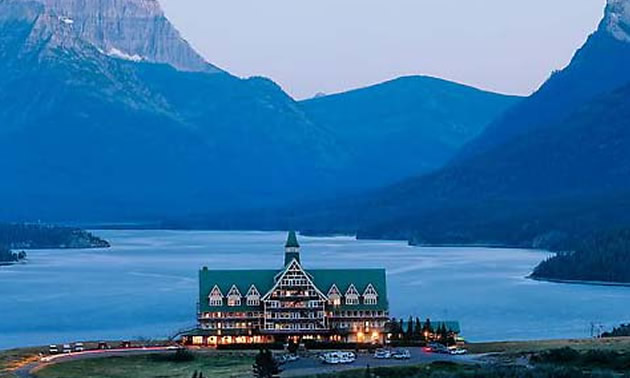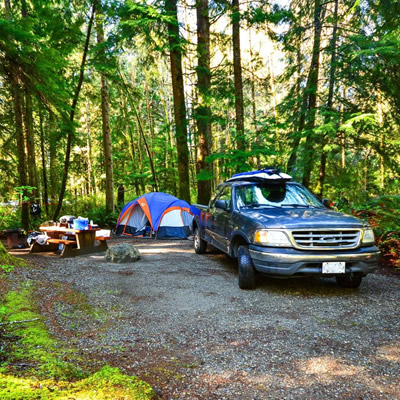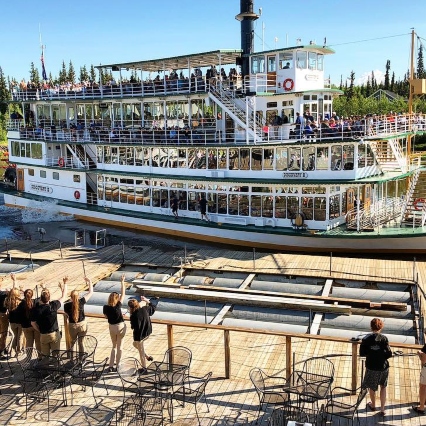Parks Canada bans motorized boats to protect ecological integrity of Waterton Lakes National Park

In managing national parks, Parks Canada maintains or restores ecological integrity of both land and water. To ensure the ongoing protection of Waterton Lakes National Park against invasive aquatic mussels, the use of motorized and trailer-launched watercraft in the park is no longer authorized.
In November 2016, it was announced that invasive aquatic mussel larvae were found in the Tiber Reservoir in Montana, U.S., less than a half-day’s drive from Waterton Lakes National Park. Invasive mussel infestations have devastating and permanent ecological effects and economic impacts on infrastructure including irrigation networks and water treatment facilities.
The most common methods of spreading contamination are along downstream currents from established populations of invasive mussels or through the transport of infected power boats and trailer-launched watercraft. The most effective method to safeguard the ecological health of Waterton Lakes National Park is to restrict motorized and trailer-launched watercraft in the park’s waters.
Human-powered watercraft, including canoes, kayaks and other hand-launched watercraft will continue to be permitted, however, a mandatory self-inspection program will be implemented for these hand-launched watercraft. Motorized watercraft required for management purposes as well as the commercial boat tour operation will continue to operate on Upper and Middle Waterton Lake. These watercraft will be managed to ensure no risk of invasive mussel contamination.
Parks Canada is collaborating closely with the U.S. National Park Service and Alberta Environment and Parks to monitor for invasive mussels.
Backgrounder
Invasive mussel prevention in Waterton Lakes National Park
To ensure the ongoing ecological integrity of Waterton Lakes National Park, Parks Canada has implemented a prohibition on the use of motorized and trailer-launched watercraft in the park.
The prohibition follows detection of invasive mussels (quagga or zebra), aquatic invasive species (AIS), in the Tiber Reservoir in Montana, U.S., less than a half-day’s drive from Waterton Lakes National Park. The most effective method to safeguard the ecological health of Waterton Lakes National Park from the devastating and permanent ecological and economic impacts of invasive mussels is to restrict motorized and trailer-launched watercraft in the park’s waters.
Invasive mussels are originally from Europe and were first introduced into North America in the 1980s. The fingernail-sized freshwater mollusk can produce millions of eggs and easily attach itself to objects such as boats. Their numbers can reach tens of thousands per square metre.
As prodigious filter feeders, they strip nutrients from the water leaving little or no food for native species. This affects the entire food web, impacting plant and animal life in the region, and altering water chemistry and clarity. They cause extensive economic and visitor experience impacts by clogging water intake structures, dams, water treatment facilities, hydro power facilities, docks, breakwaters, buoys, boats and beaches. Infestations are permanent and irreversible. No method, technology or natural predator exists to remove invasive mussels once established in a water body.
The biggest risk of invasive mussel infestation is transmission downstream from infected waters and transfer from infested areas in motorized and trailer-launched watercraft. Prevention is key to minimize the risk.
Mussels and other AIS can inadvertently be moved to a new location attached to boats, equipment, and trailers. Standing or trapped water in boats is a concern because invasive mussels have a microscopic larval stage, allowing them to be present without being visible.
Invasive mussels pose a significant and irreversible threat to the integrity of park waters. An infestation would severely impact the park’s ecology and recreation experiences. The Waterton Lakes have a unique ecology. In addition to serving as habitat for bull trout (a threatened species), they are the only known lakes to contain the assemblage of lake trout, pygmy whitefish, and rare glacial relic species such as opposum shrimp and deepwater sculpin. The pygmy whitefish found in these lakes are considered a unique population and designated Special Concern by the Committee on the Status of Endangered Wildlife in Canada. Upper Waterton Lake is the only known location of deep water sculpin in Alberta.
In addition, with the headwaters of the South Saskatchewan River Basin located in Waterton Lakes National Park, an invasive mussel infestation in the park could threaten irrigation networks for southern Alberta’s agricultural industry, water infrastructure for numerous jurisdictions including the cities of Lethbridge and Medicine Hat, and other recreational areas.
The prohibition on the use of motorized and trailer-launched watercraft in Waterton Lakes National Park is an important step to ensure the ongoing ecological integrity of the park and prevent downstream impacts. Parks Canada will continue to manage the aquatic integrity in Waterton Lakes National Park through monitoring, public education and a non-motorized watercraft inspection and permit program. In addition, staff, outside researchers and contractors must follow best practices and a strict decontamination protocol for gear and equipment when working in park waters.
Invasive mussels are found in Quebec, Ontario, Manitoba, and 34 U.S. states, including Montana.








